We pack in containers, deploy, monitor - the program Root Conf
The fact that RHS ++ is a festival for those who make the Internet are not empty words. We really believe that it is useful to understand not only the intricacies of our stack, but also to be aware of the general trends of the industry and to know who lives next door.
And who is adjacent to the back-end and front-end? That's right, the operation! And Root Conf is a conference on support and operation of IT projects, monitoring, virtualization, CD / CI, fault tolerance and all that jazz.
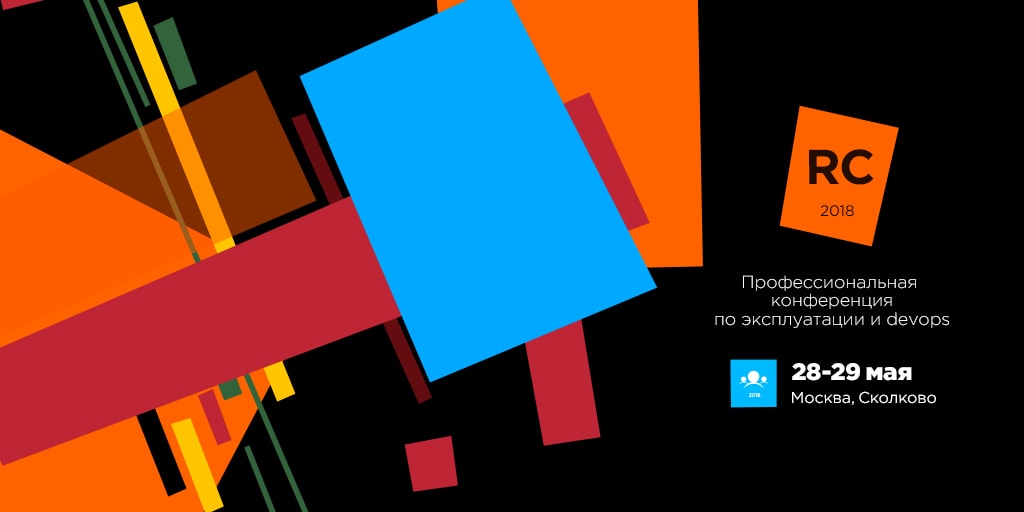
')
We will build the review of the program according to the following principle: first, reports that will be held in the main hall, and then the rest in sections.
Dmitry Stolyarov from Flanta will share his extensive experience in setting up monitoring , obtained from operating 21 projects on Kubernetes , which include more than 200 different applications written in 8 programming languages. And also answer many related questions.
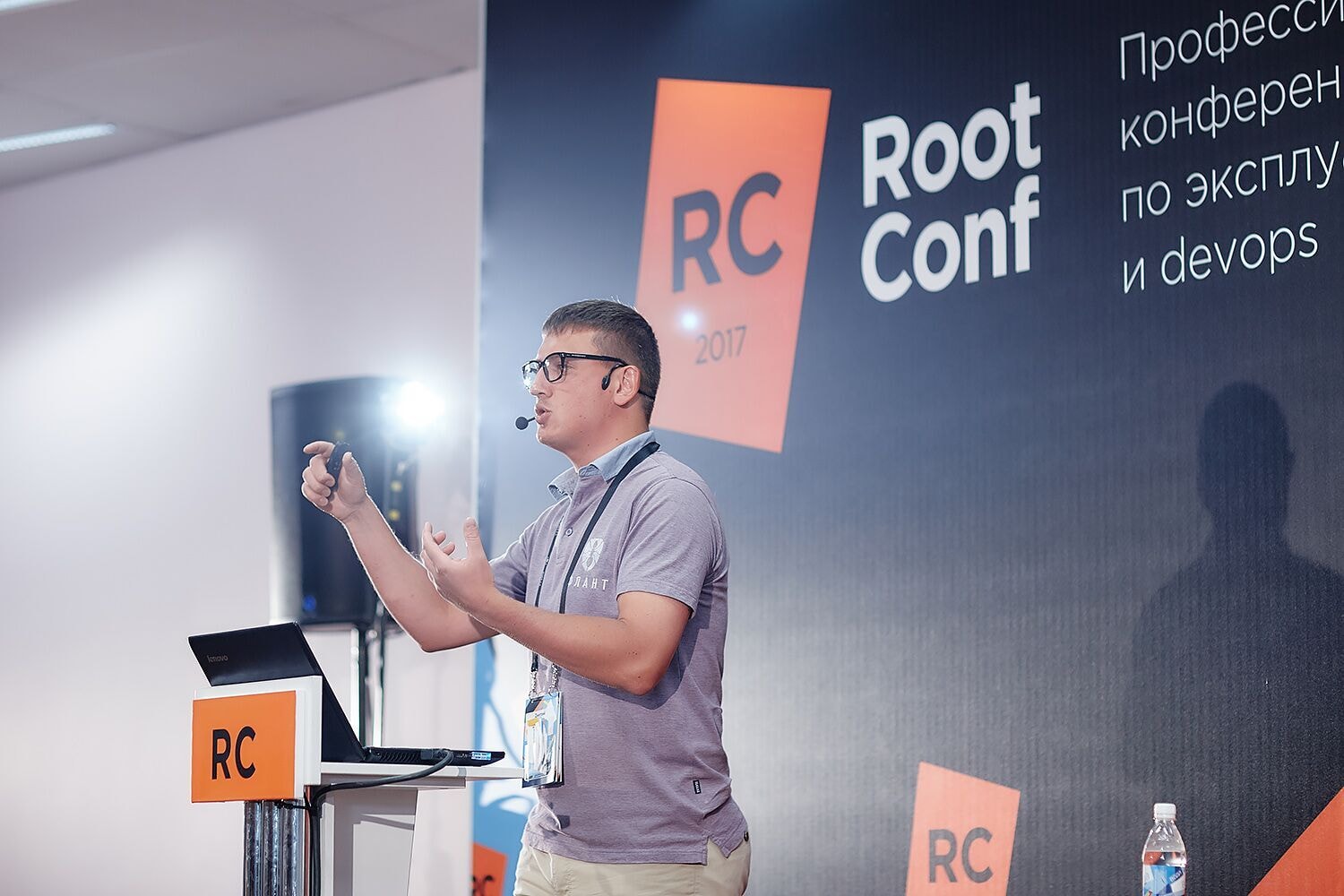
Nikolai Sivko from Okmeter.io plans to talk about those aspects of load balancing , which are not yet very popular and which most engineers do not know.
Alexey Parshukov will tell how DocDoc went from 1 release per week to 30 releases per day , why it is needed, how much it costs, and most importantly: how it works.
And then, together with Ilya Saulenko from Avito, we will go in search of the perfect CI pipeline. Teams with a running Continuous Deployment process will receive from the report information for thought about what processes are missing in their existing pipelines, and developers who only plan to implement CI are the criteria for choosing the most suitable integration server for them.
In 2018, it is difficult to surprise people by the very fact that there is a CI / CD at least working, but there are a lot of pitfalls.
Daniil Migalin (Microsoft) will present a Skype method for organizing the process of delivering code in production so that it is not at the same time burdensome for developers, but at the same time flexible, manageable and transparent. It will not be something specific to Skype, but simply about the problem itself and one of the ways to solve it.
Oleg Blokhin will tell you how in Dodo Pizza they built the process of developing a deployment script so that coding can be entrusted to students without fear, and feedback about its quality can be obtained in one minute. And also about the difficulties we faced when working with D ocker-containers under Windows , and what kind of bonuses you can get from them.
The concept of “ Everything as a Code ” has recently been penetrating more and more into all areas of software development. Maxim Grameen from CROC believes that this approach is applicable both to the development and maintenance of the database, and in his report he will tell how not only good old incremental migrations are suitable for this scheme, but also the baseline, object manipulation code and the database server itself.
Vyacheslav Chernikov from Binwell believes that automation of CI / CD, testing and monitoring is also applicable in mobile development, but there is still some specifics, and even that we can use the term Mobile DevOps - find out how it differs from normal DevOps.
And what about the boxed products? Are they with their releases every six months apart? Maxim Lapshin with Erlyvideo is definitely not to the side. From his report we learn how the introduction of DevOps practices helps reduce the number of bugs .
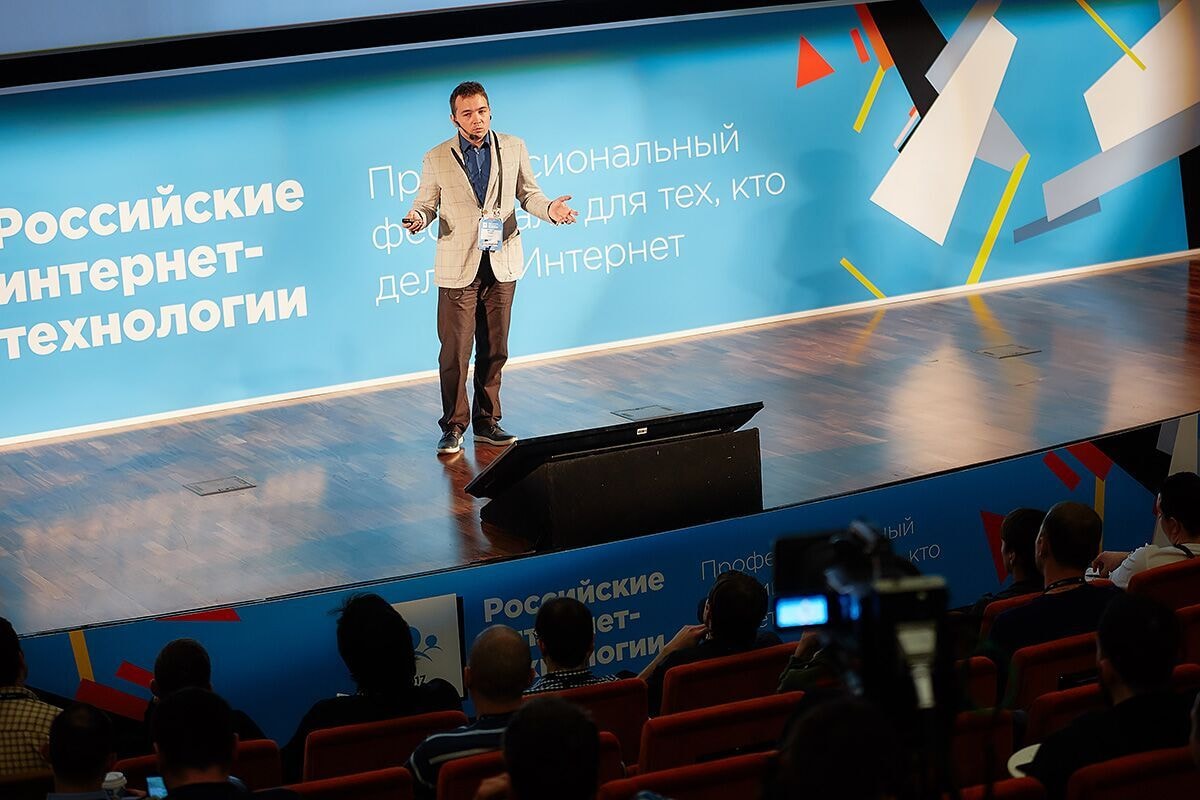
Without this, simply nowhere, it is necessary to monitor everything and do it effectively, therefore it is necessary to develop tools and new approaches.
OmniTI Vice President Leon Fayer believes that the ability to quickly identify and fix problems in production rather than development, is of priority importance and requires an understanding of usage patterns and trends throughout the system. In the report, he plans to talk about a system monitoring strategy , which may make it possible to understand whether your business is doing well .
The report by Grigory Zemskov (Revizium) will propose an approach to monitoring site security , including all possible options for passive and active detection of malicious scripts, viruses, and other types of site infections.
Alexei Palazhchenko from Percona promises to tell about Prometheus standard (but poorly documented) means for storing metrics not in the short-term mode, but months and years, automatically cutting the old data, but without changing the interface of working with them.
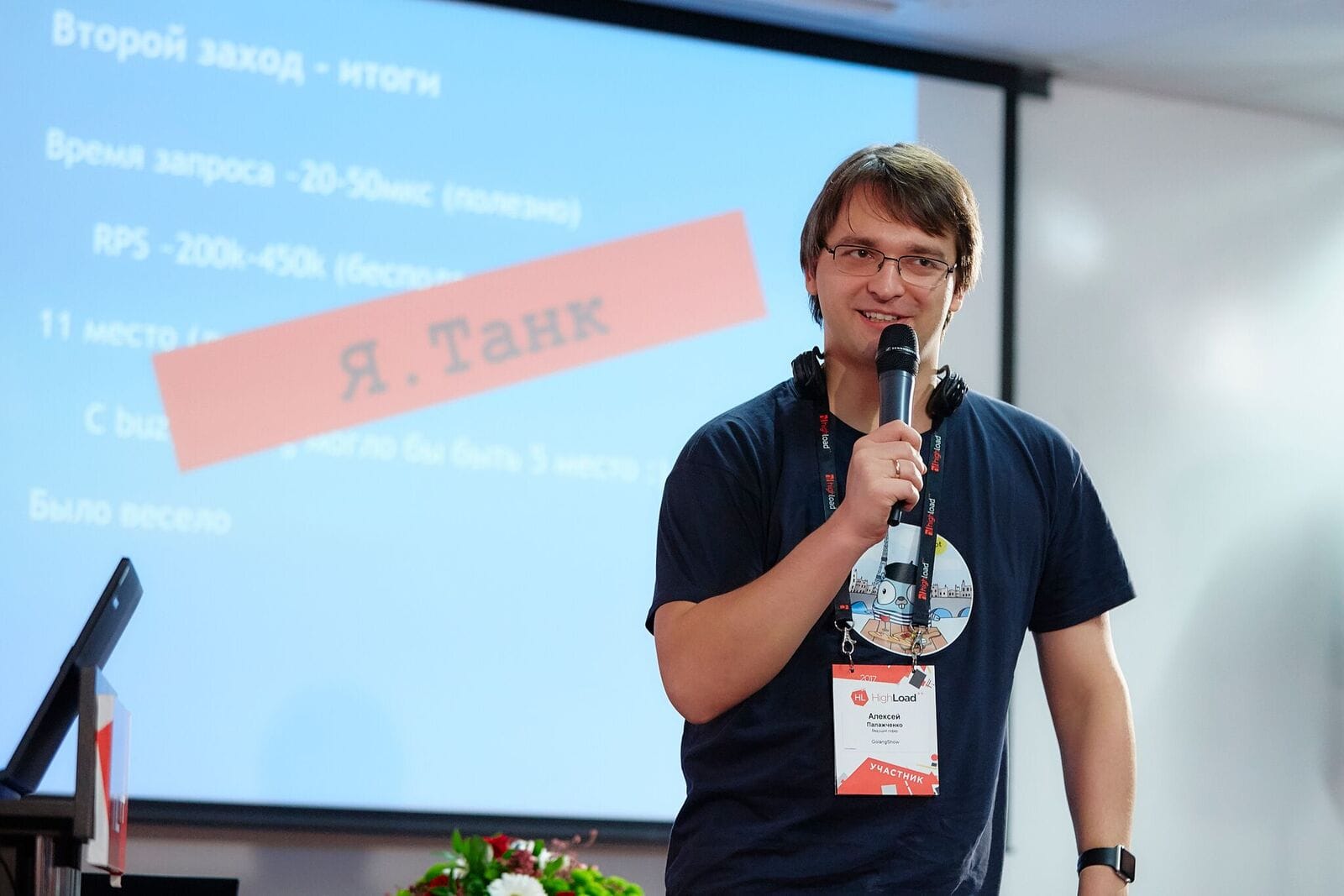
Nikita Maslyannikov ( CIAN ) will tell about the results of dividing one Cassandra cluster with data into several, most importantly, the process took place without application downtime and data loss.
Levon Avakian in his report promises to tell how the World of Tanks Server (cluster of clusters) with all web services looks. What are the bottlenecks in terms of fault tolerance and how in Wargaming solve the problems that arise technically, processually, design-wisely .
The main goal of the report by Vadim Ponomarev (Selectel) is to tell in details how the network works in modern clouds, what technologies are used, how they develop, identify problems and give recommendations on how to solve them.
Mikhail Kuzmin from JetBrains plans to deal with many issues related to the application of continuous delivery not only to the application development process, but also to infrastructure management , represented by virtual machines.
Evgeny Potapov and Timur Khasanov from ITSumma will talk about the approaches to solving the problem of combining the need for a fast and transparent application deployment and the need to work with Big Data . Let's refresh what technologies there are, find out that we managed to try, what didn’t fit, what were the problems, and how it works in the end.
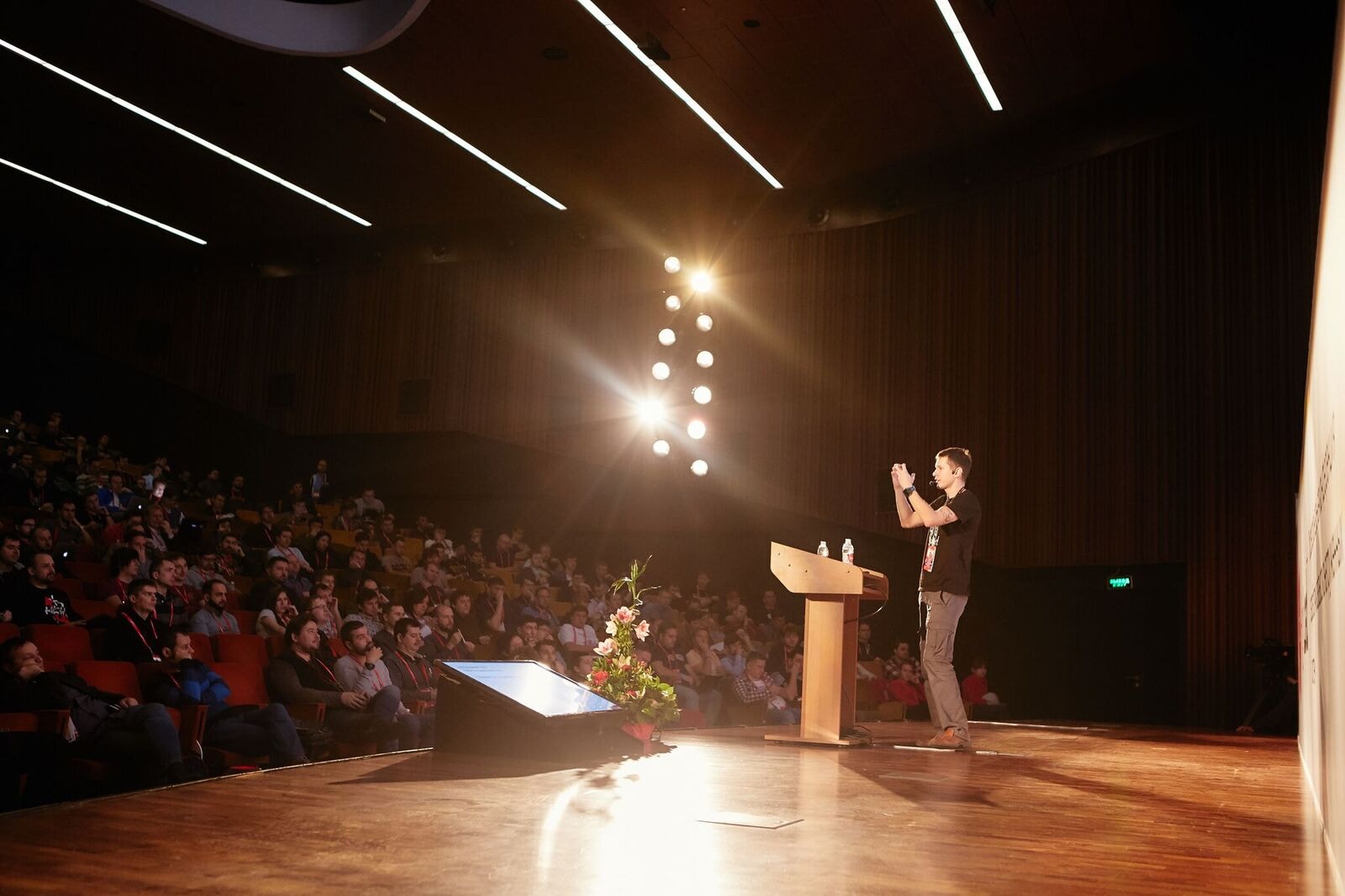
Gleb Alshansky from Jet.Team promises to tell how co-hosting virtual machines (VMs) with as many different load profiles as possible on one master server can seriously increase resource utilization of the master server.
Together with Ivan Glushkov from Postmates, we will try to transfer the experience of working with ordinary package managers to k8s , whether we need them at all, what they can do to help, and try to predict the near future of package managers.
Alexander Hayorov (Ingram Micro Cloud) will help us fill the gaps in the knowledge of basic network concepts and talk about network magic kubernetes - from submenu to ingress. Find out what guided the creators of the orchestrator , for which tasks you can apply certain components and why you should not be afraid of Ingress .

This photo is intended to remind you that conferences are not only reports, but also an opportunity to question experts with a passion, get to know like-minded people and just have a good time. Do not deny yourself this - join us!
And who is adjacent to the back-end and front-end? That's right, the operation! And Root Conf is a conference on support and operation of IT projects, monitoring, virtualization, CD / CI, fault tolerance and all that jazz.

')
We will build the review of the program according to the following principle: first, reports that will be held in the main hall, and then the rest in sections.
You remember that the main hall is broadcast by us on YouTube for free? To not miss, subscribe to any of our notifications - to the company or on the site in the mailing list.
main hall
Dmitry Stolyarov from Flanta will share his extensive experience in setting up monitoring , obtained from operating 21 projects on Kubernetes , which include more than 200 different applications written in 8 programming languages. And also answer many related questions.

Nikolai Sivko from Okmeter.io plans to talk about those aspects of load balancing , which are not yet very popular and which most engineers do not know.
Alexey Parshukov will tell how DocDoc went from 1 release per week to 30 releases per day , why it is needed, how much it costs, and most importantly: how it works.
And then, together with Ilya Saulenko from Avito, we will go in search of the perfect CI pipeline. Teams with a running Continuous Deployment process will receive from the report information for thought about what processes are missing in their existing pipelines, and developers who only plan to implement CI are the criteria for choosing the most suitable integration server for them.
Online broadcasts of the main hall will be able to see everyone, the link will be published on the eve of the festival in a separate news - do not miss.
Continuous deployment and deployment
In 2018, it is difficult to surprise people by the very fact that there is a CI / CD at least working, but there are a lot of pitfalls.
Daniil Migalin (Microsoft) will present a Skype method for organizing the process of delivering code in production so that it is not at the same time burdensome for developers, but at the same time flexible, manageable and transparent. It will not be something specific to Skype, but simply about the problem itself and one of the ways to solve it.
Oleg Blokhin will tell you how in Dodo Pizza they built the process of developing a deployment script so that coding can be entrusted to students without fear, and feedback about its quality can be obtained in one minute. And also about the difficulties we faced when working with D ocker-containers under Windows , and what kind of bonuses you can get from them.
The concept of “ Everything as a Code ” has recently been penetrating more and more into all areas of software development. Maxim Grameen from CROC believes that this approach is applicable both to the development and maintenance of the database, and in his report he will tell how not only good old incremental migrations are suitable for this scheme, but also the baseline, object manipulation code and the database server itself.
Vyacheslav Chernikov from Binwell believes that automation of CI / CD, testing and monitoring is also applicable in mobile development, but there is still some specifics, and even that we can use the term Mobile DevOps - find out how it differs from normal DevOps.
And what about the boxed products? Are they with their releases every six months apart? Maxim Lapshin with Erlyvideo is definitely not to the side. From his report we learn how the introduction of DevOps practices helps reduce the number of bugs .

Logging and monitoring
Without this, simply nowhere, it is necessary to monitor everything and do it effectively, therefore it is necessary to develop tools and new approaches.
OmniTI Vice President Leon Fayer believes that the ability to quickly identify and fix problems in production rather than development, is of priority importance and requires an understanding of usage patterns and trends throughout the system. In the report, he plans to talk about a system monitoring strategy , which may make it possible to understand whether your business is doing well .
The report by Grigory Zemskov (Revizium) will propose an approach to monitoring site security , including all possible options for passive and active detection of malicious scripts, viruses, and other types of site infections.
Alexei Palazhchenko from Percona promises to tell about Prometheus standard (but poorly documented) means for storing metrics not in the short-term mode, but months and years, automatically cutting the old data, but without changing the interface of working with them.

Resiliency and disaster resilience technologies
Nikita Maslyannikov ( CIAN ) will tell about the results of dividing one Cassandra cluster with data into several, most importantly, the process took place without application downtime and data loss.
Levon Avakian in his report promises to tell how the World of Tanks Server (cluster of clusters) with all web services looks. What are the bottlenecks in terms of fault tolerance and how in Wargaming solve the problems that arise technically, processually, design-wisely .
Virtualization and Containerization
The main goal of the report by Vadim Ponomarev (Selectel) is to tell in details how the network works in modern clouds, what technologies are used, how they develop, identify problems and give recommendations on how to solve them.
Mikhail Kuzmin from JetBrains plans to deal with many issues related to the application of continuous delivery not only to the application development process, but also to infrastructure management , represented by virtual machines.
Evgeny Potapov and Timur Khasanov from ITSumma will talk about the approaches to solving the problem of combining the need for a fast and transparent application deployment and the need to work with Big Data . Let's refresh what technologies there are, find out that we managed to try, what didn’t fit, what were the problems, and how it works in the end.

Gleb Alshansky from Jet.Team promises to tell how co-hosting virtual machines (VMs) with as many different load profiles as possible on one master server can seriously increase resource utilization of the master server.
Together with Ivan Glushkov from Postmates, we will try to transfer the experience of working with ordinary package managers to k8s , whether we need them at all, what they can do to help, and try to predict the near future of package managers.
Alexander Hayorov (Ingram Micro Cloud) will help us fill the gaps in the knowledge of basic network concepts and talk about network magic kubernetes - from submenu to ingress. Find out what guided the creators of the orchestrator , for which tasks you can apply certain components and why you should not be afraid of Ingress .

This photo is intended to remind you that conferences are not only reports, but also an opportunity to question experts with a passion, get to know like-minded people and just have a good time. Do not deny yourself this - join us!
A full schedule with halls and time will soon appear on the websites of all conferences of the festival, but for now you can buy tickets and free yourself from other affairs for two days - on May 28 and 29.See you in Skolkovo!
Source: https://habr.com/ru/post/358690/
All Articles